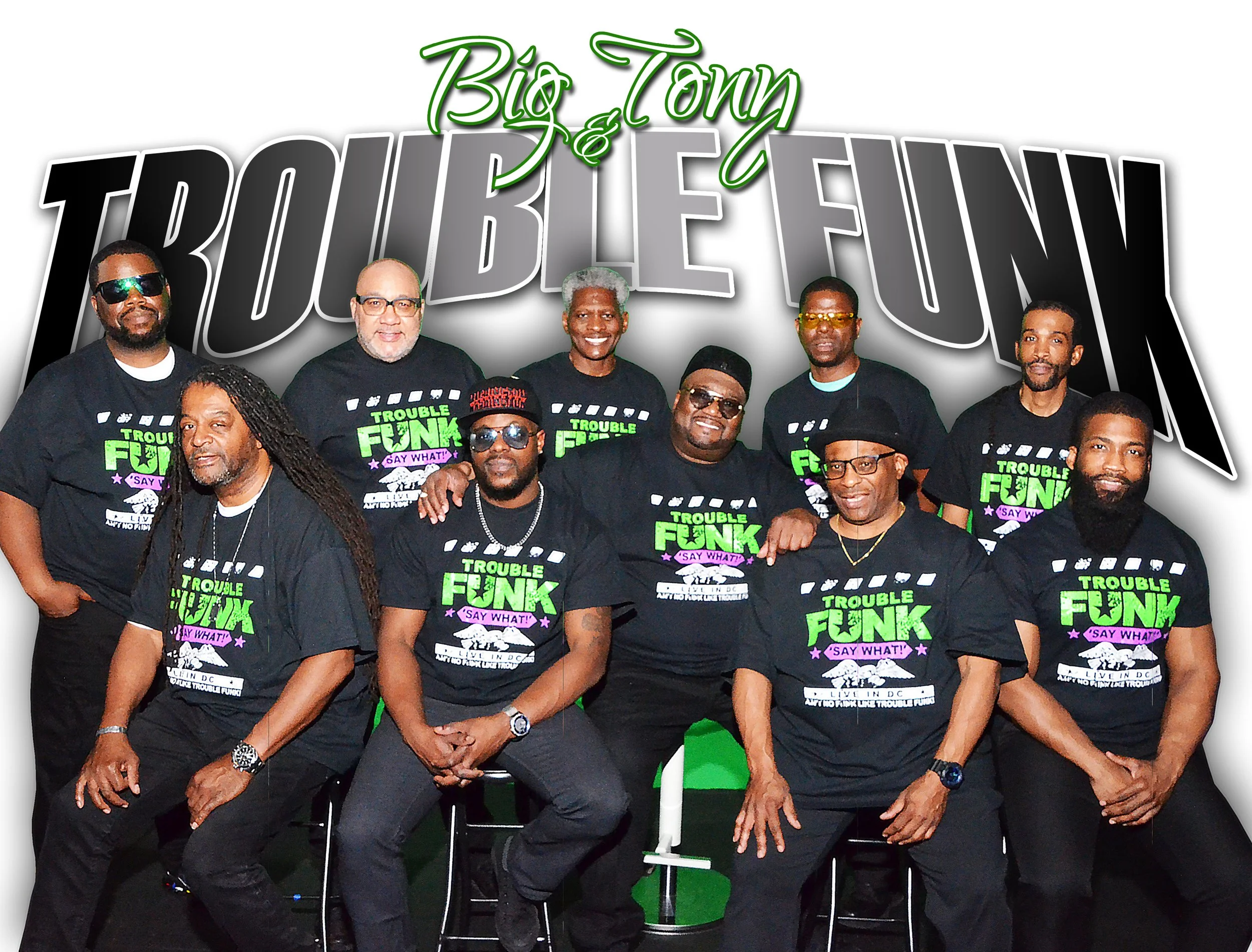go-go
Washington, D.C
Photo courtesy of artist
For nearly 50 years, Trouble Funk has helped spread Washington D.C.’s funky go-go sound from all-night dance parties in the DMV to audiences worldwide. One of the leading bands during go-go’s golden era in the 1980s, Trouble Funk’s intensified percussion and innovative use of electro-funk and early rap lyrics produced a brand of go-go that fit more squarely within African American urban musical expression up and down the East Coast, and earned them a loyal and passionate following that continues growing today.
A highly syncopated, percussive, homegrown offshoot of funk pioneered in the early 1970s by Chuck Brown, go-go combines elements of R&B, gospel, hip hop, and jazz; African and Latin-derived rhythms; and call-and-response vocals—all layered over a signature percussion pattern. Crowd participation and a nonstop groove are essential: shout-outs to individuals and neighborhoods keep audiences engaged, and songs blend into one another, keeping energy high. “It’s like a beautiful, interactive record [of D.C.],” as go-go scholar Natalie Hopkinson put it. “It’s party music. It’s soulful.” While go-go never quite broke through nationally, it continues to thrive in the region thanks to performances, bootleg recordings, social media videos, and the loyalty of its fans. In 2019, it served as a catalyst and driving force behind #DontMuteDC, a grassroots movement addressing the cultural impacts of gentrification. And in 2020, the D.C. city council called for a program to support and archive go-go music and history, passing legislation declaring go-go “the official music of the District of Columbia.”
Heavily influenced by the electro-funk bands of the era, Trouble Funk formed in 1978 with childhood friends Robert “Syke Dyke” Reed and bassist/lead talker Tony “Big Tony” Fisher at its center. The group quickly built a reputation around their party-friendly hooks and call-and-response vocals. In 1982, Trouble Funk’s recording Drop the Bomb appeared on pioneering hip hop imprint Sugar Hill, making them the first go-go group to have a release outside of D.C. The group’s more progressive sound, equal parts Chuck Brown, Kurtis Blow, P-Funk and Zapp, brought it to the attention of DJs in nightclubs along the East Coast. By the time of its 1985 album Saturday Night: Live! from Washington, D.C., Trouble Funk had built an international reputation and was touring worldwide, including a show at the Montreux Jazz Festival in 1986.
Like other go-go groups, Trouble Funk didn’t find mainstream success after the initial wave of interest passed in the mid-1980s. However, they maintained a loyal regional following and have continued to tour and perform off and on. Although Reed sadly passed away in 2008, Trouble Funk continues to preside over legendary parties up and down the East Coast, including a performance at the National Museum of African American History and Culture’s commencement ceremony in 2016. They have also headlined shows at Wolf Trap several years running.
Trouble Funk is closing in on their 50th anniversary, an impressive feat for any group. With original founding member, bassist/lead talker Tony “Big Tony” Fisher, still at the group’s helm, the DMV’s all-night, go-go groove shows no signs of letting up anytime soon. It is no surprise Trouble Funk is among the group of artists returning to celebrate the Richmond Folk Festival’s 20th anniversary.



